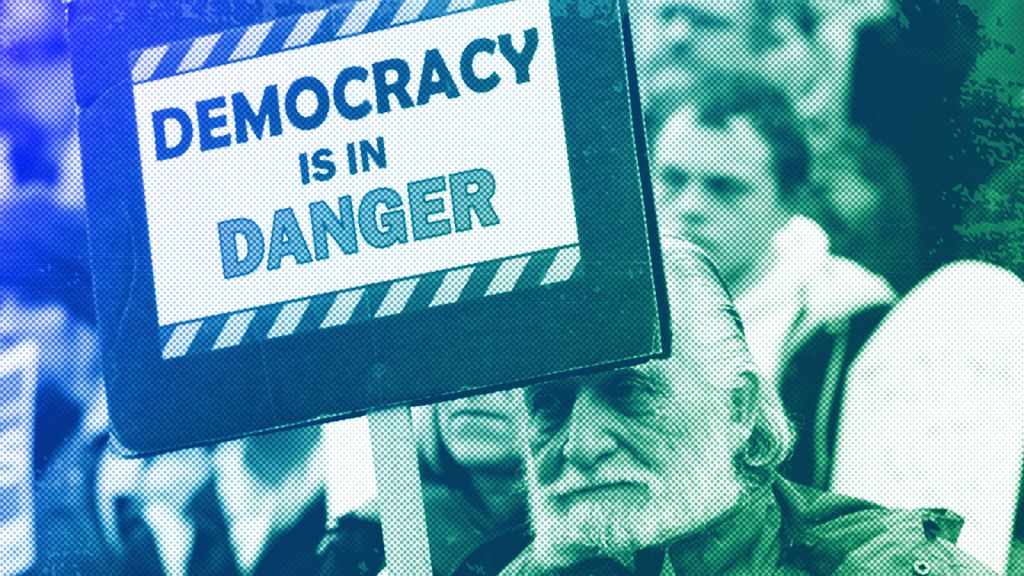A man walks past a neon lights street installation in Warsaw, February 2017 – AP Photo/Czarek Sokolowski
Citizens’ assemblies are gaining traction because they offer a powerful response to both external and internal threats. They have the potential to counter authoritarian tactics by fostering informed, inclusive dialogue that builds social cohesion and resilience.
By bringing together diverse citizens to deliberate on contentious issues, assemblies help diffuse polarisation, creating a space where common ground can be found even on divisive topics.
They also help combat disinformation by ensuring people are equipped with accurate, balanced information, which then feeds back into the wider public discourse. Moreover, assemblies model a more cooperative, transparent political culture, showing that decision-making can be collaborative rather than adversarial.
Informed, inclusive and cooperative
The battle for democracy in Eastern Europe is not just about elections or party politics. It is about restoring trust in public life and showing that citizens, when given the chance, can be thoughtful, engaged, and solutions-oriented.
For decades, authoritarian actors have thrived on division and distrust. Citizens’ assemblies offer a way to push back — by fostering informed, inclusive, and cooperative engagement that weakens the appeal of populist rhetoric.
The question now is whether more governments and international institutions will support these efforts. European organisations have already stepped in to provide funding for some assemblies, but more needs to be done.
Related
To make citizens’ assemblies a sustainable feature of Eastern Europe’s democratic landscape, they must be integrated into the formal political system. This means legal frameworks that ensure their recommendations are taken seriously and consistent funding.
Democracy in Eastern Europe is still in a precarious position. But from Warsaw to Tbilisi, ordinary citizens and forward-thinking leaders show that resilience is possible.
If governments can muster the courage to support this democratic innovation, they may find that the best way to defend democracy is by empowering the people.
Ieva Cesnulaityte is the founding Head of Research and Learning of DemocracyNext, an international nonprofit organisation that aims to shift political power to citizens through citizens’ assemblies. She is a 2023/2024 Europe’s Futures Fellow at the Institute for Human Sciences in Vienna.
Source link : http://www.bing.com/news/apiclick.aspx?ref=FexRss&aid=&tid=673f5723c6f146b9aaf79dde8a151f14&url=https%3A%2F%2Fau.news.yahoo.com%2Feastern-europe-needs-defences-against-142945018.html&c=16517960489226257875&mkt=en-us
Author :
Publish date : 2024-11-21 01:29:00
Copyright for syndicated content belongs to the linked Source.
